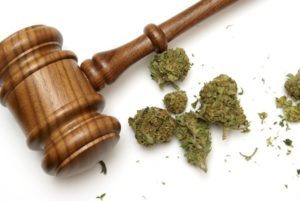 The amendments to N.J.S.A. 2C:52-10.1 continue:
The amendments to N.J.S.A. 2C:52-10.1 continue:
b. Upon receipt of the information from the court pursuant to paragraphs (2) and (3) of subsection a. of this section, the Superintendent of State Police, the Attorney General, and the county prosecutor of any county in which the person was convicted shall, within 60 days, review and confirm, as appropriate, the information against the person’s criminal history record information files and notify the court of any inaccurate or incomplete data contained in the information files, or of any other basis for ineligibility, if applicable, pursuant to N.J.S.2C:52-14.
c. The court shall provide copies of an expungement order to the person who is the subject of the petition and electronically transmit the order to the law enforcement and criminal justice agencies which, at the time of the hearing on the petition, possess any records specified in the order in accordance with N.J.S.2C:52-15.
The amendments made it easier to expunge third and fourth degree drug-distribution related offenses. A provision automatically applying a heightened standard of review for third and fourth degree drug-distribution related offenses was removed from the statute. Now, the heightened standard only applies in cases in which a law enforcement agency specifically objects. In those cases, the burden to demonstrate that the expungement should be denied is on the objecting party. This is consistent with an overall trend over the past several years in favor of making it easier to obtain an expungement.
N.J.S.A. 2C:52-14 is amended as follows:
a. Any statutory prerequisite, including any provision of this chapter, is not fulfilled or there is any other statutory basis for denying relief.
b. The need for the availability of the records outweighs the desirability of having a person freed from any disabilities as otherwise provided in this chapter. An application may be denied under this subsection only following objection of a party given notice pursuant to N.J.S.2C:52-10 and the burden of asserting such grounds shall be on the objector.
c. In connection with a petition under N.J.S. 2C:52-6, the acquittal, discharge or dismissal of charges resulted from a plea-bargaining agreement involving the conviction of other charges. This bar, however, shall not apply once the conviction is itself expunged.
d. The arrest or conviction sought to be expunged is, at the time of hearing, the subject matter of civil litigation between the petitioner or his legal representative and the State, any governmental entity thereof or any State agency and the representatives or employees of any such body.
e. Except as set forth in subsection a. of section 7 of L. , c. (C. ) (pending before the Legislature as this bill) concerning a “clean slate” expungement petition, the person has had a previous criminal conviction expunged regardless of the lapse of time between the prior expungement, or sealing under prior law, and the present petition. This provision shall not apply:
(1) When the person is seeking the expungement of a municipal ordinance violation or,
(2) When the person is seeking the expungement of records pursuant to N.J.S.2C:52-6.
f. (Deleted by amendment, P.L.2017, c.244)
